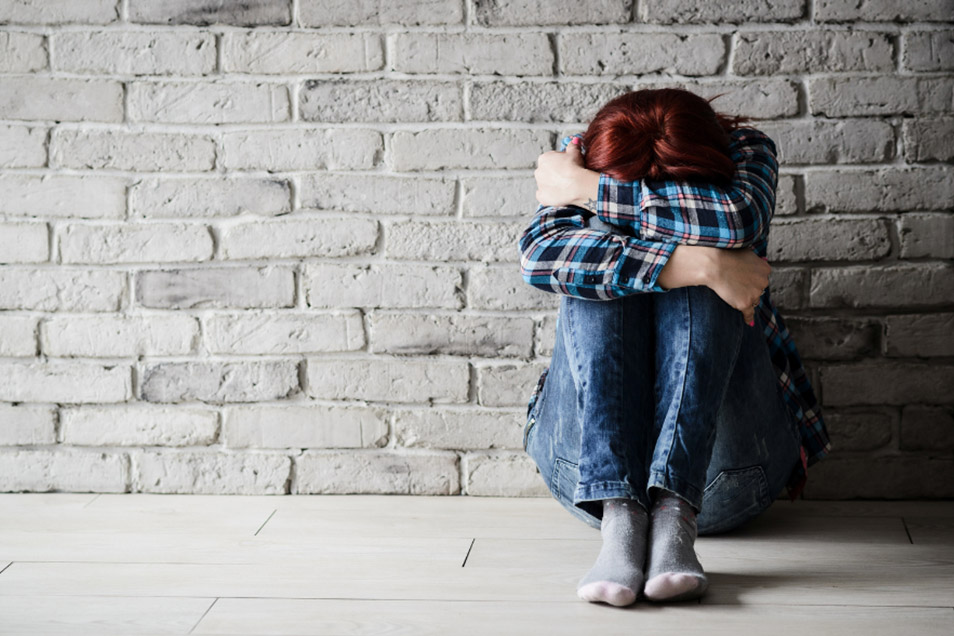Sadness can be a complex emotion to deal with. Sometimes, though, sadness can deepen, and this may be a sign that you are suffering from a form of depression.
Why you may not know you’re struggling with depression
Symptoms of depression can present as a result of a stressful life change or appear for 'no reason at all. You may be aware that you don't feel like your usual self, but sometimes, sadness can deepen and form depression.
There are a variety of possible reasons for being depressed without knowing it. It may not be on your radar, whether it's due to mental health stigma or denial, or you may ignore any symptoms because you've grown accustomed to them. Sometimes, it's easy to mistake the symptoms of depression for something else.
Here are a few reasons why you may not recognize that you're struggling with depression:
You've been depressed for some time. If someone struggles with depression for a long time, at some point, it feels normal. It may be especially true if you've experienced symptoms of depression for years or since you were a child.
Your symptoms have developed gradually over time. When changes in your mood are subtle and come on slowly, it isn't easy to recognize that you don't feel the same way you used to.
You feel down about yourself. If you tend to feel bad about yourself, or defective, it's easy to dismiss your feelings, as they're simply a part of who you are'. You may also feel that you are 'broken' or unworthy of feeling any different rather than struggling with a treatable mental health issue.
You have internalized attitudes about mental health. Cultural differences can also make it more challenging to acknowledge depression. If your family, friends, or other people you surround yourself with treat depression as something you must bear without complaint, you may feel like asking for help means you're weak.
Symptoms of depression
How can you tell if you’re depressed? Clinical depression, also known as major depressive disorder, can have a range of ongoing symptoms. If you’ve been experiencing several of them for two weeks or more, it’s possible you could be experiencing depression.
- Fatigue, lack of energy
- Excessive guilt, hopelessness, worthlessness
- Agitation, irritability
- Losing interest in activities you once enjoyed
- Isolation or withdrawal from others
- Difficulty sleeping or sleeping too much
- Changes in appetite or weight
- Mysterious physical aches and pains, such as headaches, stomachaches, etc.
- Problems with thinking, memory, focus, and decision making
- Thoughts of death or suicide
Treatment for depression
There are several different options available for treating depression.
Psychotherapy
- Individual therapy, specifically cognitive-behavioral therapy (CBT), provides a safe and supportive environment for you to understand yourself better and how you can work through your sadness.
- Group therapy can help you see that others are going through the same thing and help you feel less alone since it's normal to feel isolated or different when you're depressed.
Medication
Depression medications are a standard part of treatment. Research has shown that both anxiety and depression respond well to selective serotonin reuptake inhibitor (SSRI) and serotonin-norepinephrine reuptake inhibitor (SNRI) medications.
Whichever direction you choose to take, remember that there is no shame in getting help for depression. While it's a serious condition—it's also one you don't have to manage on your own.
Taking the first step
At Michigan Psychological Care, our mission is to help you find the care and treatment you need. We work to put your worries about opening up to rest by providing a comfortable location and atmosphere.
Our sessions are provided in a one-on-one setting with one of our experienced therapists. If you're interested in group counseling, we also provide that. We have three convenient facilities to provide you with the compassionate care you deserve. Contact us to schedule an appointment.
Resources
https://www.apa.org/ptsd-guideline/patients-and-families/cognitive-behavioral
https://www.mayoclinic.org/diseases-conditions/depression/symptoms-causes/syc-20356007
Keywords: dealing with depression, treat depression, help for depression, how to stop worrying and start living


